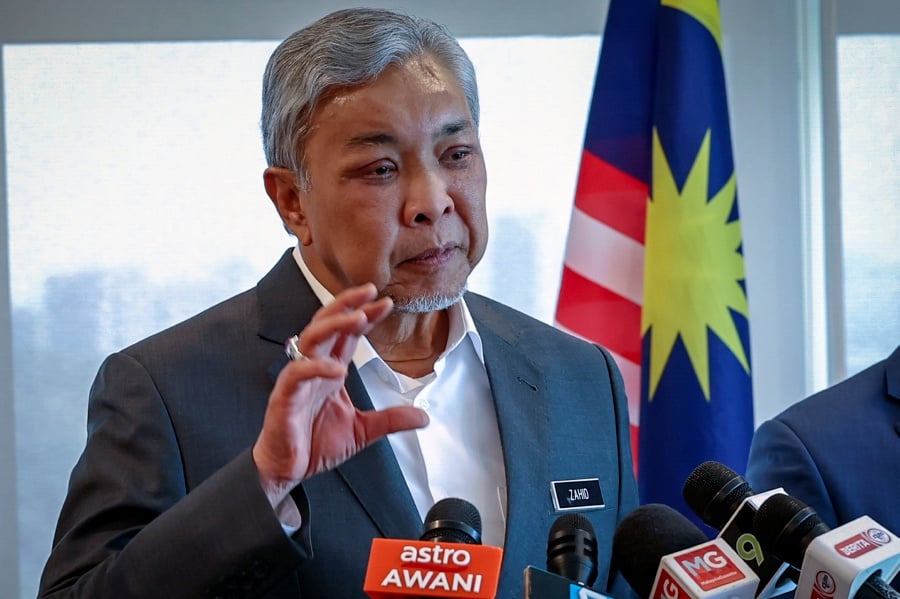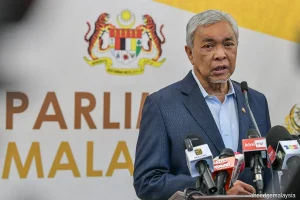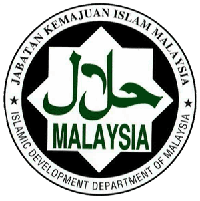PUTRAJAYA – Malaysia needs to take further measures to become a viable halal economic hub, said Deputy Prime Minister Datuk Seri Fadillah Yusof.
 This would include strengthening infrastructure development, research and development (R&D), education and training, technology integration and global collaboration.
This would include strengthening infrastructure development, research and development (R&D), education and training, technology integration and global collaboration.
He said the halal industry caters to a vast consumer base of 1.8 billion Muslims globally, growing at 2 per cent annually, and that awareness of the halal industry’s potential in emerging markets would elevate the halal economy.
He pointed out that the halal economy is estimated at US$3.1 trillion globally and is projected to reach US$5 trillion by 2030, while in Malaysia, the market value has surged to US$ 68.4 billion and is anticipated to reach US$113.2 billion by 2030.
“As such, the potential for growth spans not only among Muslim nations but also in Western markets with expanding Muslim populations where observance of halal practices are increasing, (while) non-Muslims seeking quality, safe and wholesome products will further drive market expansion,” he said.
Fadillah, who is also the Plantation and Commodities Minister, said this in his keynote address at the opening of the 1st International Conference On Islamic and Halal Economic Studies (ICIHES) 2023 and the 3rd International Conference On Islamic Law, Economics and Finance (SPEKI 2023), here today.
He said a comprehensive halal economy must integrate the values of justice, truth, and welfare, especially concerning business transactions.
Fadillah said Malaysia has long harboured ambitions of being a global centre for the production and distribution of halal goods and services.
“With a continued focus on developing expertise, particularly in Islamic banking and financial services, Malaysia aspires to lead the way in setting global standards and implementing best practices within the expansive halal industry,” he said.
“While the certification process may not directly contribute significantly to the national economy, the broader halal business aspect generates wealth, fosters societal well-being and boosts economic returns on a broad perspective,” he added.
Fadillah said Malaysia has several advantages in fortifying the halal value chain, which includes a solid regulatory framework under the Prime Minister’s Department where Jakim and Halal Development Corp Bhd (HDC), with over 20 ministries and agencies, contribute to a robust halal regulation. Other advantages are having a complete ecosystem of halal laboratories, certification and training facilities at multiple local universities.
Besides that, the minister said a global halal logo and standardised certification procedures that adhere to various international quality standards, such as the International Organisation for Standardisation (ISO), Codex Alimentarius and Hazard Analysis Critical Control Point (HACCP) have significantly popularised halal principles amongst non-Muslim food manufacturers.
He said Malaysia recently made substantial strides in the halal industry with the launch of the Halal Industry Master Plan 2030 by the Economy Ministry and HDC.
Fadillah said the government remains steadfast in its commitment to building the halal industry by emphasising the importance of collaboration among government and key private stakeholders.
He said Malaysia’s success in pioneering halal-compliant standards and certification since the early 70s has been widely acclaimed with the establishment of the first Islamic bank in 1983, marking the inception of the country’s Islamic financial system.
He said Malaysia’s commendation by the United Nations as a model for labelling halal food following the adoption of Codex general guidelines in Geneva in 1997 remains pivotal for Muslim consumers worldwide.
ICIHES 2023 serves as a crucial platform to deliberate and exchange ideas aimed at further empowering the halal economy and strengthening the ummah.
The conference was jointly organised by the Legacy Association of Tun Abdullah Ahmad Badawi (LEGASI), Hadhari Global Foundation, HDC, Jakim, Halal Economy University Research Group (KPU Halal Economy) at the Faculty of Economics and Management, Universiti Kebangsaan Malaysia. – BERNAMA



